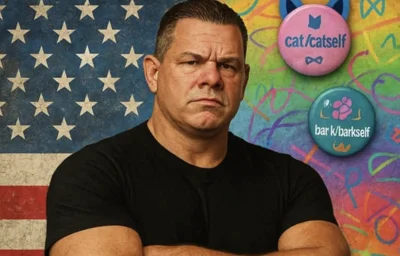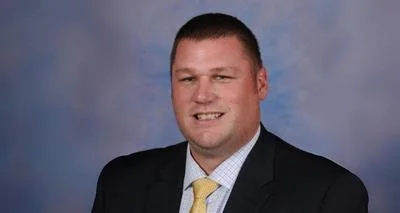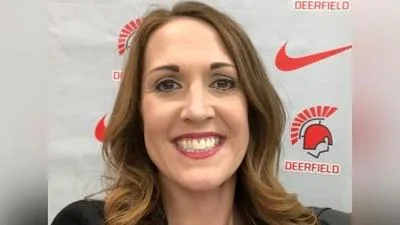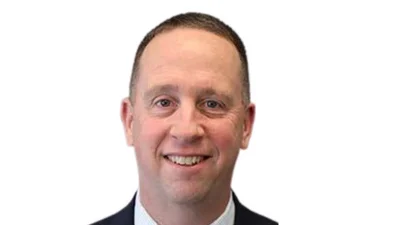Benjamin Salzberg | Contributed photo
Benjamin Salzberg | Contributed photo
Benjamin Salzberg, the Republican candidate for the District 29 state Senate seat, recently applauded Comptroller Leslie Geissler Munger for bringing to light the lack of compromise and communication in Springfield when she proposed “No Budget No Pay.”
“In theory, Leslie Munger wants to hold the payments for all the legislators,” Salzberg said. “Realistically, will that work? It definitely brings into light the communication that needs to be done within the whole House and the Senate to be able to come together and to sit down and to problem-solve.”
Munger’s bill proposes that lawmakers not be paid unless they pass a balanced budget for the state. Salzberg admires how the bill forces the hard questions onto lawmakers.
“What can be done and what can be sensibly worked on to make the state a running functional state of Lincoln?” Salzberg said. “That’s definitely what we need to do, and (Munger) brings that to light.”
Salzberg's perspective comes from watching the state decline and lose its manufacturing jobs and families.
“Illinois used to be a manufacturing state,” Salzberg said. “We used to have a lot of manufacturing companies here, and now, of course, it’s no longer true. A Commission on Government Forecasting and Accountability report shows and points to a huge unemployment rate compared to our neighboring states. The reason for that is because people are leaving the state to find other jobs, and companies want to leave. The state is not pro business or pro families.”
Among the difficult questions Salzberg continuously asks are how can families take care of themselves and their children, and how can the state develop an economy that fosters growth? He compares the situation to a garden.
“If you look at this like a garden, in order for a plant to grow, you have to have the seeds,” Salzberg said. “The seeds, you have to plant it in the soil. The soil has to be prepared. It has to be fertilized before you plant the seeds in. It has to be watered. The foundation to grow that seed has to be there. Illinois does not seem to have built any of the foundations to make the seeds grow.”
Salzberg said the state does not have the proper laws and systems in place that will bring back companies or support new businesses which will, in turn, support families.
“Entrepreneurs that want to start here in Illinois can’t because of funding and fees,” Salzberg said. “They can’t do it. The cost to even get permits is extremely high. The cost to do business in Illinois, with its workers' compensation, is almost untenable and impossible compared to other states. That’s why businesses are flocking to other states.”
Salzberg re-emphasized the state’s need to foster growth.
“We have to cultivate an environment, just like a garden, to grow that seed,” Salzberg said. “In order to do that, we have to reassess, re-engineer and re-implement smarter decisions and smarter laws that will bring back a growing economy and focus on the future of middle-class residents. We are far behind now compared to other states in middle-class salaries. We are lacking here in the Midwest, and we should not be like this.”
The changes needed to implement growth are important, and Salzberg wants the voters of Illinois to take a step back and focus on themselves on a local level instead of directing their attention to the national election.
The outcome of the state’s election in November matters.
“The outcome could be either way,” Salzberg said. “If we make the right decisions to elect people like myself that are problem solvers, we can proceed to correct the State of Illinois. If we elect the current system, like a Madigan or a Cullerton or my opponent, Julie Morrison, we reaffirm that Madigan is doing a great job. If people vote in a fashion of a way of apathy, this is something that cannot be done. We need to continue to push for change and continue to push for problem solving.”
Salzberg accentuates that the people of Illinois need to be heard and that the only way to do that is to communicate with one another and support each other.
“We need to start communicating what change means to one another,” Salzberg said. “What does change mean to an individual? What does change mean to you? What does change mean to me? That particular change can be scary. Most people are scared of change until they have no choice, but what does change mean to you, to the people, to the public?”
Salzberg said voters need changes that can create a state where their families can thrive, have the ability to afford their education, and have the ability to live the American dream. She said the foundation is there for Illinois to be successful, but that there are a couple of weeds that need to be pulled from the garden.
“Those are the areas that we need to concentrate on,” Salzberg said. “The people of Illinois need and must be heard. We cannot sit by as a whole just to listen to national elections. We need to concentrate on the local level. We need to understand what change means to each other.”






 Alerts Sign-up
Alerts Sign-up